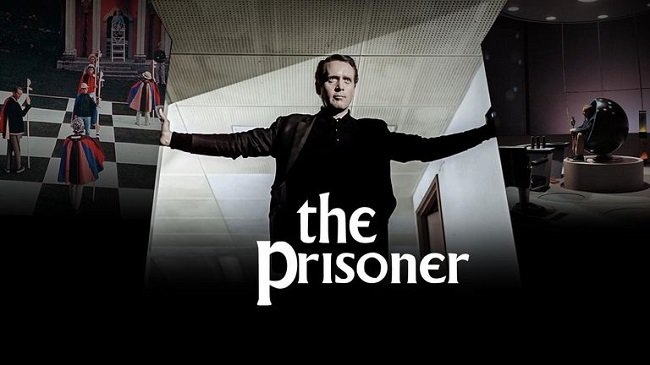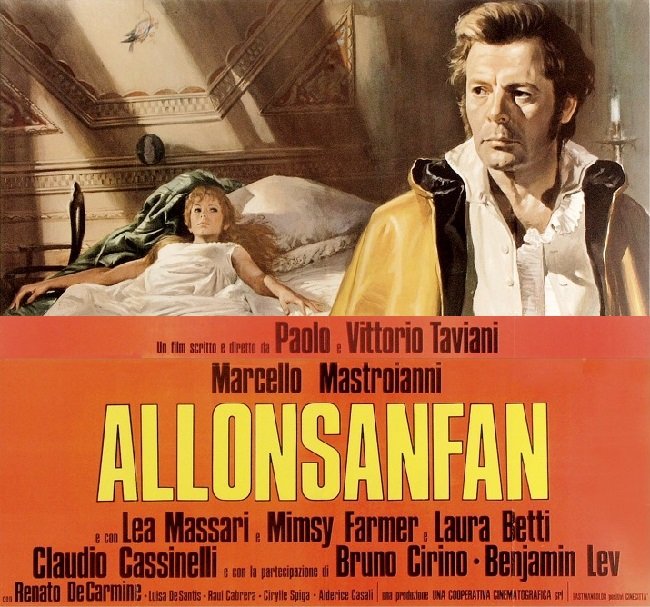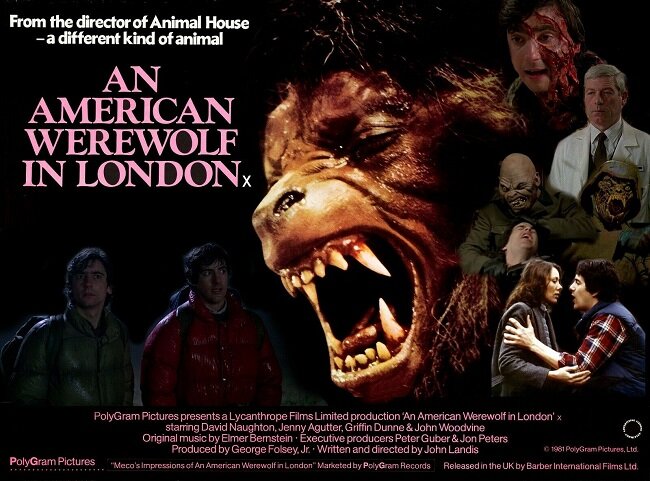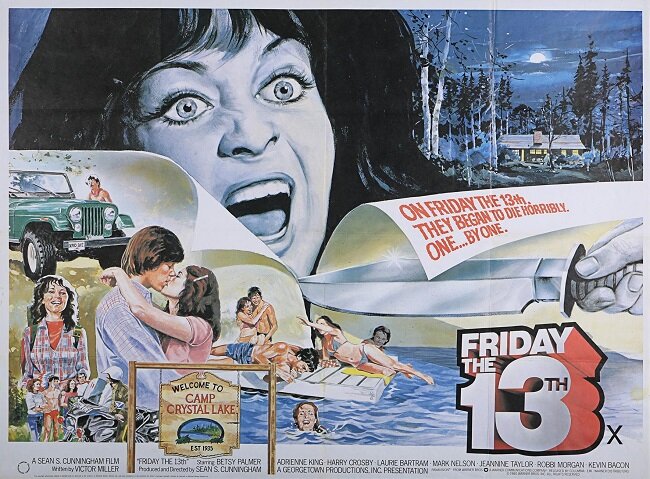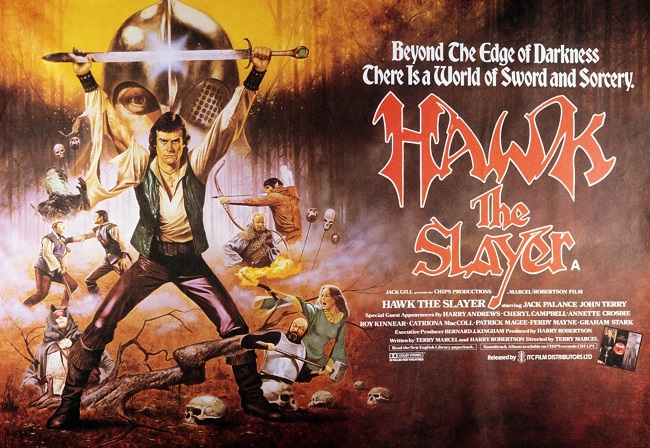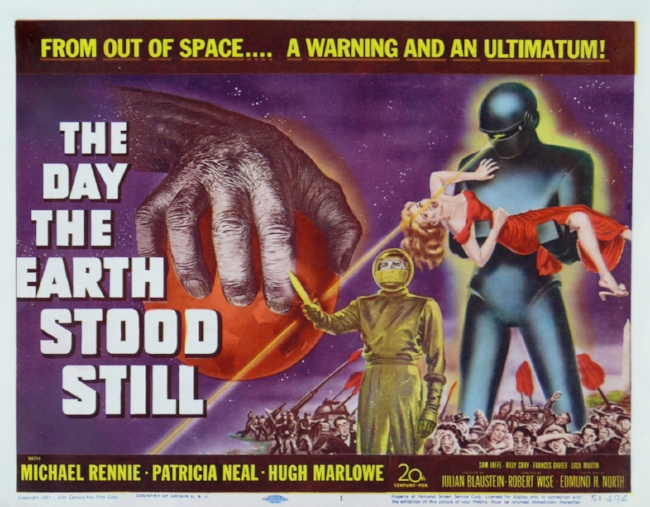Cult Movie Soundtracks
There is a common consensus that a cult movie doesn’t necessarily have to be a good one. Badly written scripts, low budgets and curious casting are just some of the things that can contribute to making a film a cult classic. Many movies of this idiom have showcased talent that subsequently went on to better things. Sometimes films that are hailed as complete turkeys or financial disasters upon release are retrospectively deemed of merit. Often it is films soundtrack that can be its one saving grace. Take for example Ennio Morricone’s prodigious body of work. He is considered by many to be one of the finest (if not the finest) film composer alive. Yet some of his best work has been for incredibly poor, flawed or indifferent films. Consider Hundra, Treasure of the Four Crowns or Orca for example.
With this idea in mind I've collated five films that are for various reasons are labelled “cult” and have suffered the “slings and arrows of outrageous fortune” over the years. All have scores of interest and note, though for different reasons. I have chosen a track from each soundtrack which I think highlights the musical excellence and integrity of the composers involved. The genres are varied as are the musical styles and nuances of each piece. All clearly demonstrate how a well-conceived score can embellish and enhance a movie, effectively becoming a character in its own right.
Much has been written about Sir Lew Grade’s 1980 adaptation of the popular Clive Cussler’s novel, Raise the Titanic and precious little is complimentary. Yet despite the films faults which mainly came from multiple script re-writes, the soundtrack by the late John Barry is an outstanding piece of work. It captures the mood of the film perfectly, especially during the underwater sequences. Often it is played against extensive miniature work with little human interaction, yet it vividly enhances these sequences and conveys sense of urgency and risk associated with undersea exploration. I have chosen the cue when the submersible Deep Quest finally locates the wreck of the Titanic. The music changes from the sombre themes of the search to one of elation. This is vintage John Barry at his best.
The Beastmaster is the embodiment of a cult movie. A low budget, independent production from the early eighties designed to cash-in on the sword and sorcery boom of the time, it features a quality score by Lee Holdridge. Holdridge is primarily known for his work on television on such shows as Moonlighting and Beauty and the Beast. His forays into the world of cinema are less frequent but often of note. The Beastmaster is the story of Dar, who by a quirk of his birth has gained the power to communicate with beasts. The fact that his Black Panther sidekick is in fact a Tiger that’s been dyed is neither here nor there. The main theme for the movie is rousing and of a standard seldom seen in movies of this genre.
I make no bones about the fact that I utterly love this car crash of a movie. Lifeforce is a text book example of a movie that endured a tumultuous production and a last minute re-edit. There are vast differences between the US release of the film and the international version. The Shorter American print features a re-scored soundtrack by Michael Kamen, a very popular composer at the time. The lengthier, more coherent and marginally better European cut included the full original soundtrack by none other than the great Henry Mancini. It's not a name that you immediately associate with the Sci-Fi genre. However Mancini manages to bring gravitas to the proceedings with several finely polished cues that nearly make you forget the preposterous nature of the film. The main theme is a sweeping orchestral piece that really should belong to a better film.
Any film that features a repeating crossbow, death by silly string and Bernard Bresslaw cannot be all bad. Hawk the Slayer is a wonderful piece of low budget, sword and sorcery hokum. It is also very British. Producer Harry Robertson also wrote the film score and it is the embodiment of early eighties UK synth-pop. Drawing upon such diverse influences as Jeff Wayne’s musical version of War of the Worlds and the work of Ennio Morricone (specifically Westerns) it’s kitsch yet an engaging score. It utterly suits the idiom of the film and is immense fun although possibly for all the wrong reasons. The cue below is re-iterated through the early stages of the film as Hawk gathers his band of warriors.
Finally Battle Beyond the Stars was one of James Horner’s earliest scores. Considering the low budget of the film, it was extremely ambitious for the producers to pursue a full orchestral soundtrack arrangement. Many others would have opted for an electronic score. Yet Horner’s iconic main theme is incredibly accomplished and imbues the film with a quality and ambience beyond its humbled origins. It was this score that caught the notice of Paramount studios and subsequently led to James Horner composing the soundtrack for Star Trek II: The wrath of Khan. The title theme of Battle Beyond the Stars contains all the hallmarks of Horner’s style. Its use of brass and rhythmic cadence are instantly captivating and convey the spirit of the narrative.

